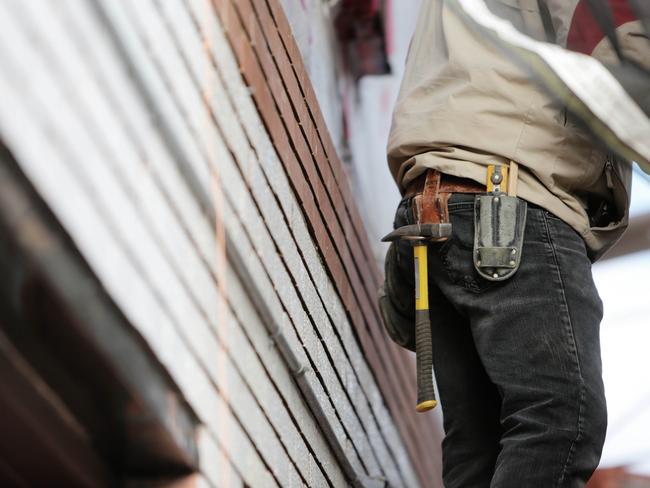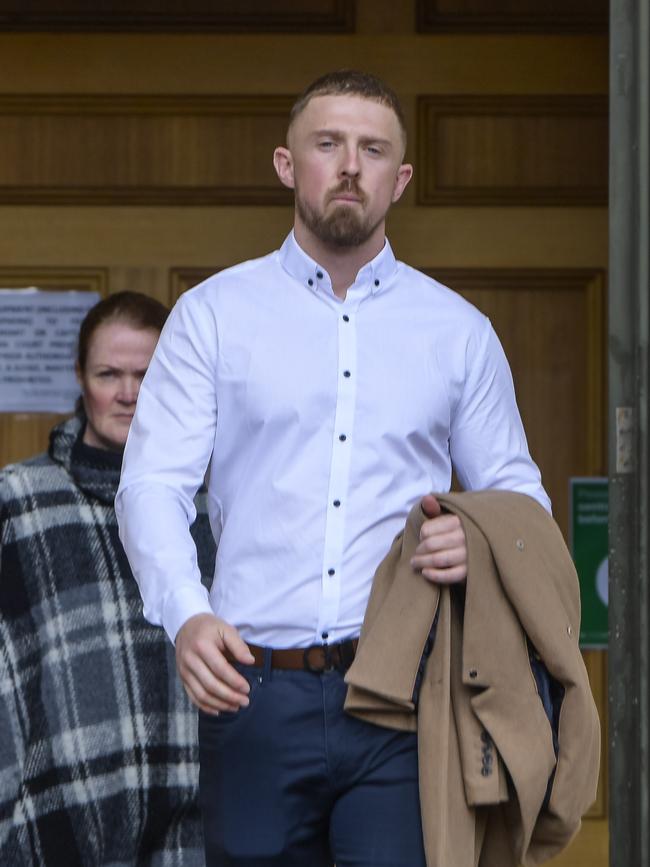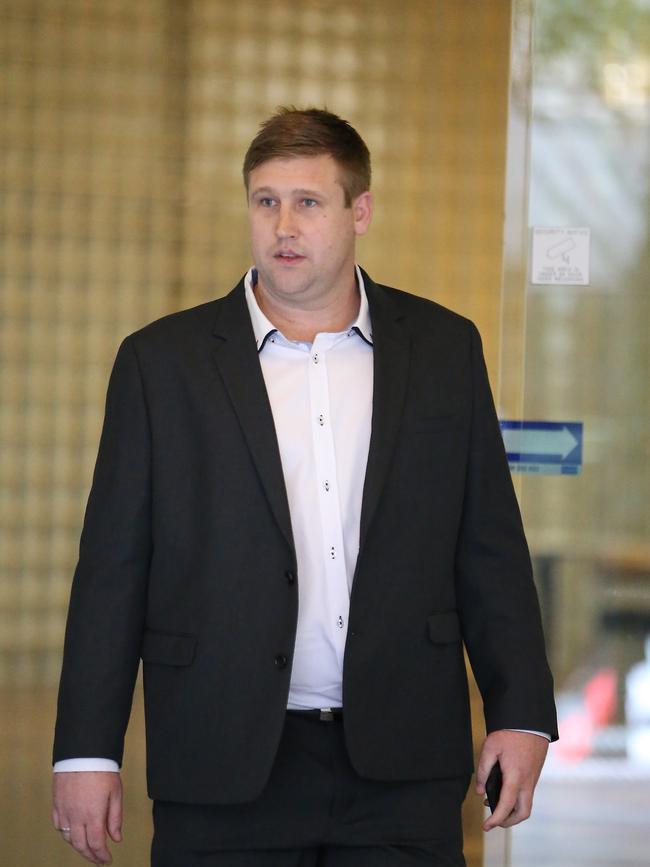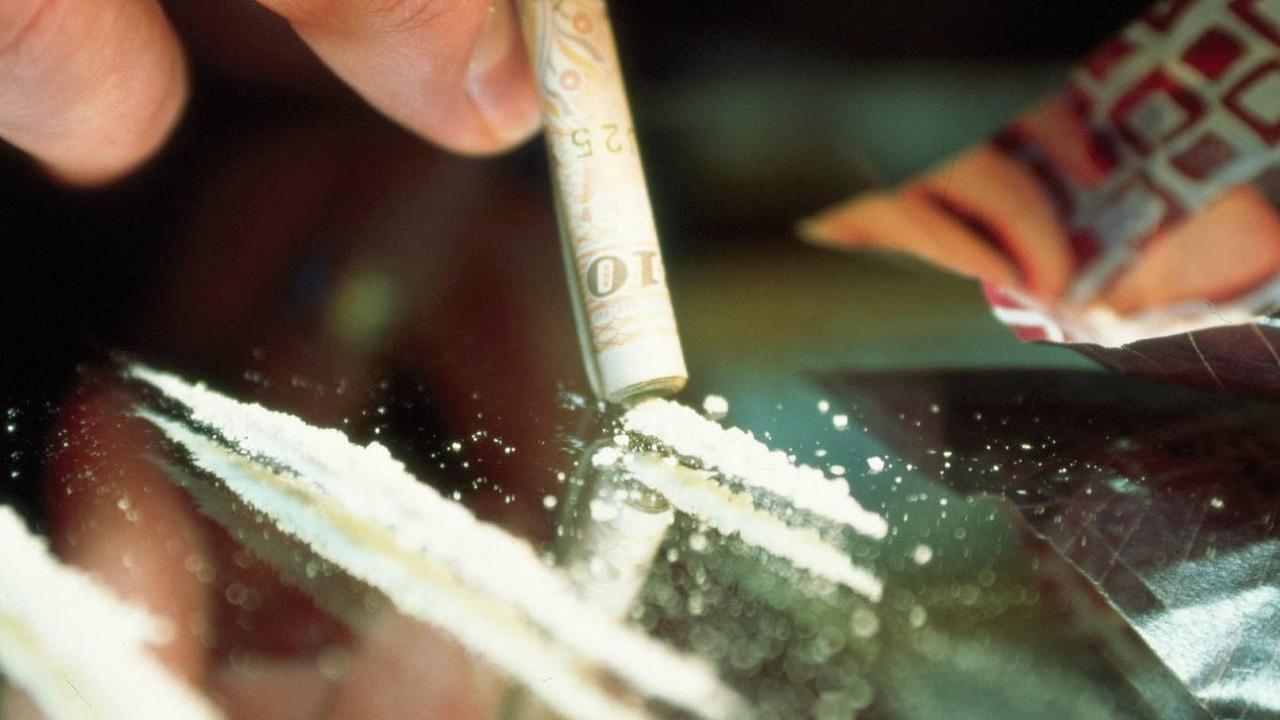Cocaine Inc podcast: Cocaine is the ‘talk’ of Australian building sites
A Melbourne tradie and stripper jailed for smuggling cocaine is one of many workers in the construction industry who have chosen to take the deadly drug. See why and listen to the podcast.
Cocaine Inc
Don't miss out on the headlines from Cocaine Inc. Followed categories will be added to My News.
Cashed-up tradies are the new market for cocaine, as their pay outstrips the top end of town lawyers, stockbrokers and accountants who were the dealers’ traditional market.
The percentage of carpenters, plumbers, and electricians’ using cocaine has doubled, according to Flinders University research.
Employed men aged 18-24 are the largest cocaine market, with as many as one in eight admitting to using the drug, which costs $300 a gram.
New union pay deals have pushed tradies salaries, including overtime and site allowances, to more than $300,000 on major projects, while some traffic controllers earn more than $200,000.
Industry sources say cocaine was now a common, and open topic of discussion on building sites across the country.

“We’ve had a lot of people on coke. I have had to let people go because I’m doing random drug tests and they are failing them because of cocaine,” a builder said.
“It used to be dope because that stays in your system longer but now it’s coke – it’s 100 per cent more prevalent.”
Another construction source said: “People talk about it openly on site, it’s everywhere. It’s the drug of the rich and they’re making enough to afford.”
CFMEU National Secretary Zach Smith said the union’s number one priority was always the health and safety of its members.
“Our union does everything we can to help workers with substance abuse issues, through offering a range of support services like rehab provider Foundation House, rather than taking a punitive approach,” Mr Smith said.
“Demonising workers in one of Australia’s most dangerous industries is completely unfair given cocaine use is obviously not isolated to any industry.”


Flinders University researchers Alice McEntee, Anne Roche and Susan Kim found cocaine use had “quadrupled since 2004” in Australia.
Their paper, based on the National Drug Strategy Household Surveys (NDSHS), found that trade workers’ cocaine use had doubled to almost one in 10.
That compared with professionals, whose use has increased from 4.3 per cent to 6.1 per cent of workers in that category in the same period.
The latest Australian Institute of Health and Welfare’s National Drug Strategy Household Survey of 2022–2023 found more than 1 million Aussies aged over 14 had reported using cocaine in that year.
Smokers and heavy drinkers were also more likely to be cocaine users.
“Interventions, policies and programs are needed that can rapidly respond to changing drug trends,” the Flinders University researchers found.

“The results of the present study show further support that the workplace is a powerful setting to instigate cocaine health promotion, prevention and intervention efforts. Potential strategies include targeting social norms within the workplace culture, and provision of health and safety training with a strong focus on risks associated with one’s own, and co-workers’ drug use.”
The construction industry’s cocaine problems have spilled into the courts.
Listen to the Cocaine Inc. podcast below:
Melbourne roofer Matthew Luke Hodder was sentenced to four years’ jail by New Zealand’s High Court in Dunedin in May after pleading guilty over his role in trying to retrieve 91kg of cocaine smuggled into New Zealand on the Spirit of Auckland container ship in August, 2022.
The court heard Hodder had turned to alcohol and cocaine after his roofing business had collapsed during the Covid-19 lockdowns.
Hodder also worked as a male stripper, going by the stage names of “Matty Thunder” and “DIY Dave”.

Gold Coast builder Dustin Rodway was given a suspended sentence by the Brisbane Supreme Court after admitting to selling cocaine to colleagues, friends and associates.
The now 34-year-old pleaded guilty to 20 drug-related charges including trafficking in cocaine at street level between October 2021 to January 2022 and supplying drugs from August 2020 to July 2021.


While fly-in, fly-out worker Dylan Ryan Chapman Tiver pleaded guilty to three counts of trafficking in a controlled drug when he was found in of possession of 338g of cocaine at properties in Noarlunga Down and O’Sullivan Beach in Adelaide in 2022.
He was using an ounce, or 28g, of cocaine a week when he was caught, a court heard in January.
Michael Greenfield, CFMEU assistant state secretary for NSW, pleaded guilty to possession of 4 grams of cocaine when nabbed by police outside the up-market Watsons Bay Hotel in Sydney in 2019.
The former NRL player escaped conviction but was put on a two-year conditional release order.
More Coverage
Originally published as Cocaine Inc podcast: Cocaine is the ‘talk’ of Australian building sites





